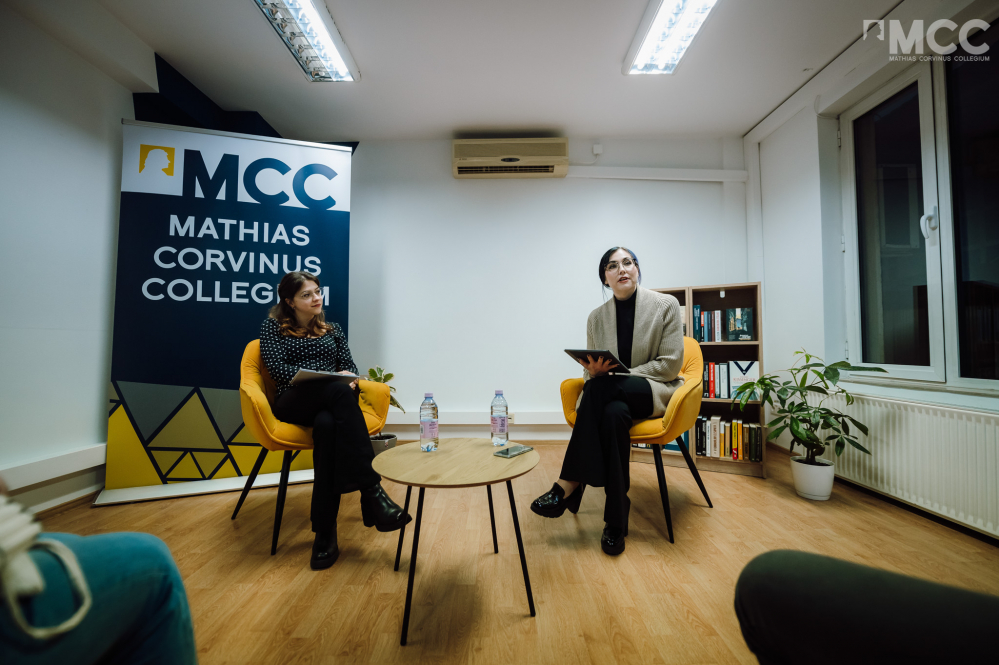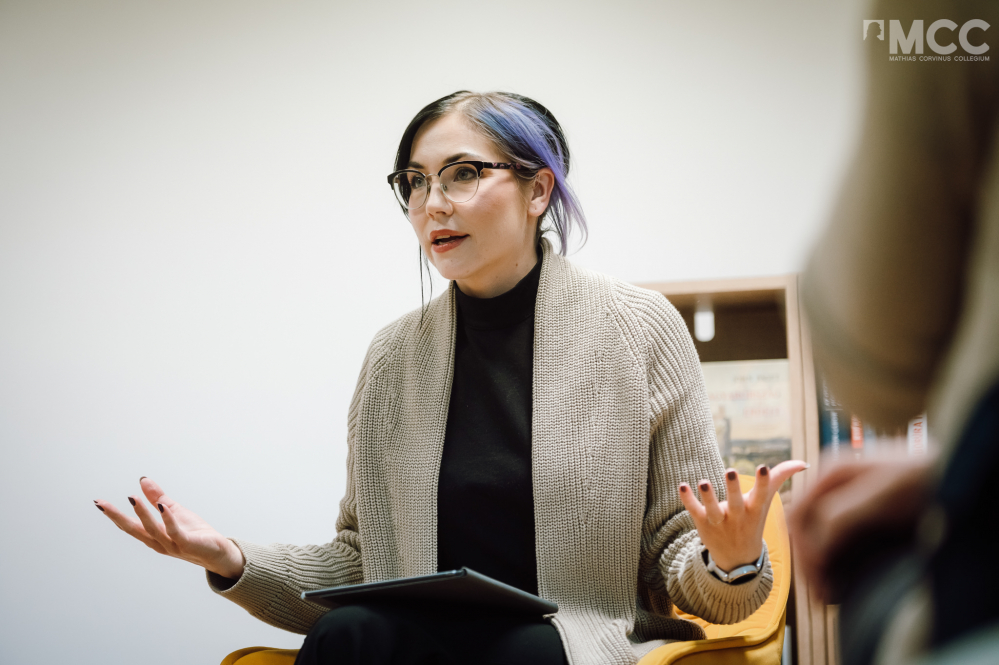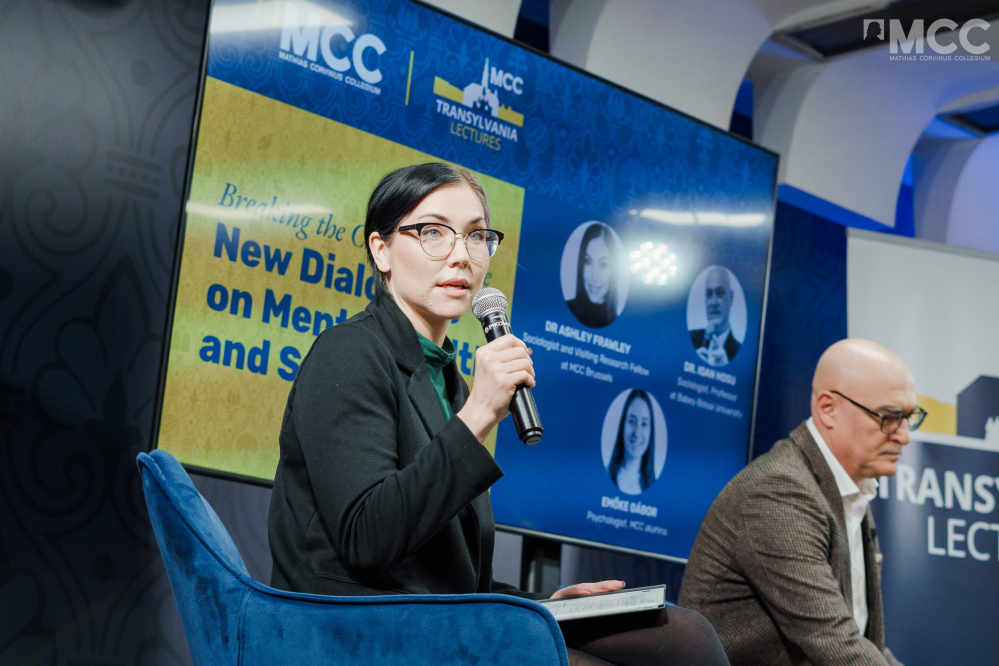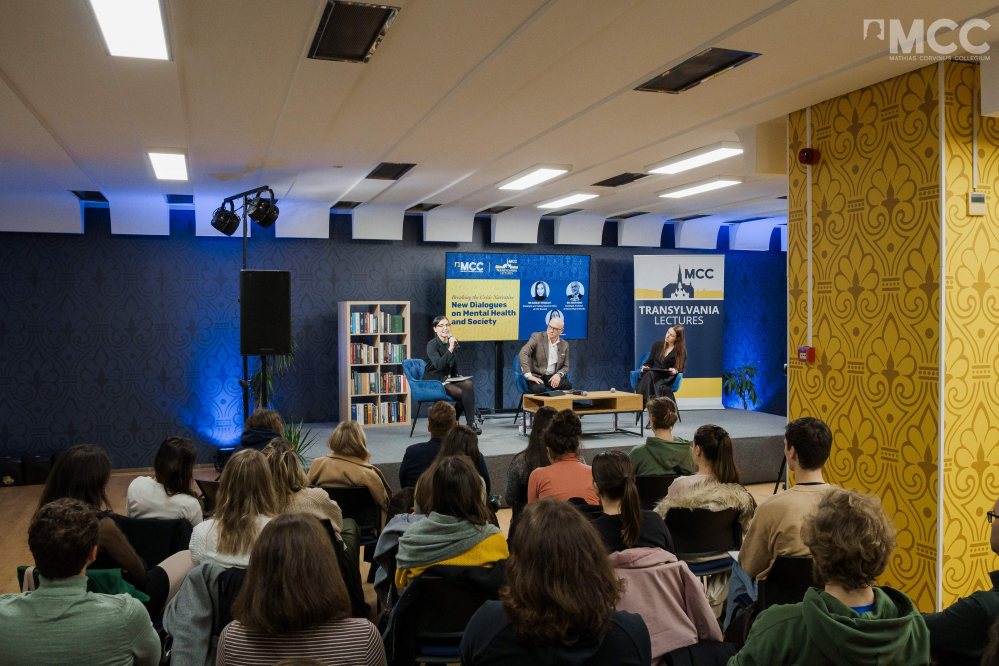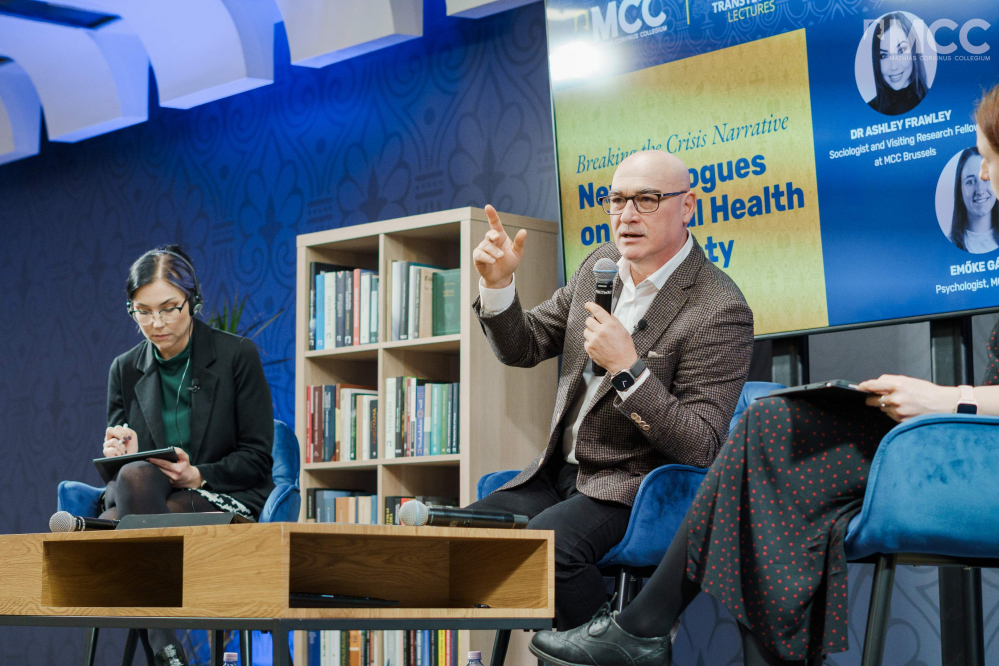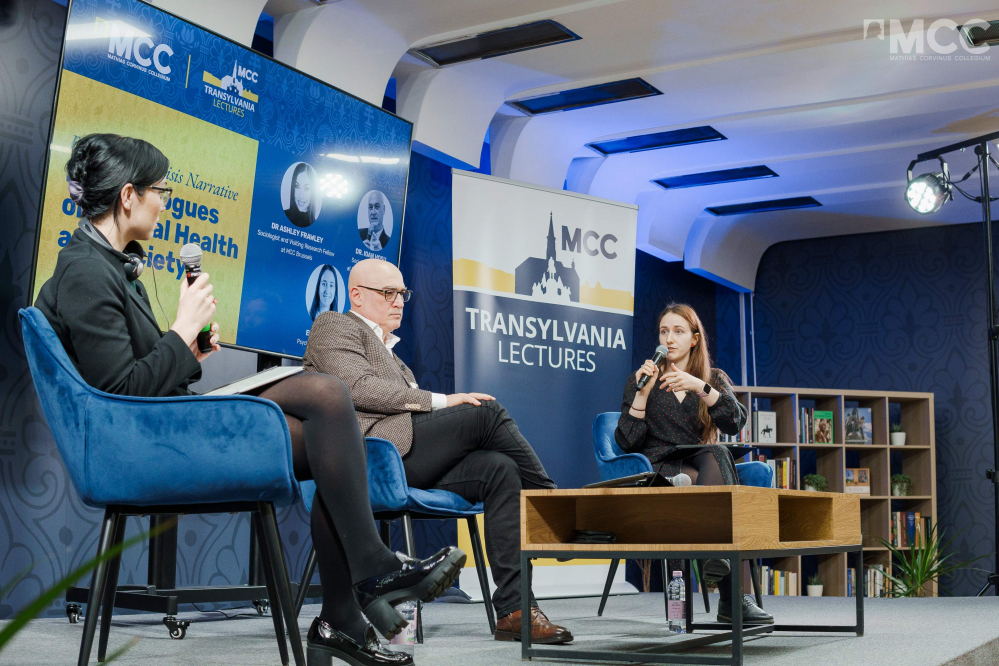Reading time: 4 minutes
Why can’t we be happy and fulfilled by ourselves? What impact does an over-medicalised approach have on mental health and how have statistics changed in the wake of the Coronavirus epidemic, globalisation and digitalisation? At the latest event of Mathias Corvinus Collegium’s (MCC) Transylvania Lectures series, on 20 February, invited sociologists Dr Ashley Frawley and Dr Ioan Hosu discussed these issues at the MCC's headquarters in Kolozsvár/Cluj-Napoca.
Is there really a global crisis in mental health? There are many reports of rising rates of depression, anxiety and other mental health problems, but Dr Ashley Frawley says it is more the definition of diagnoses, distorted surveys and changing attitudes in Western society that are behind the worrying data. For example, there is indeed an upward trend in anxiety and depression, but suicide rates have fallen and the Coronavirus epidemic has had only a slight impact on people's mental health. The Canadian-born lecturer is a sociologist at the University of Kent and a visiting researcher at MCC Brussels, and was previously a lecturer in criminology, sociology and social policy at Swansea University. At the MCC event, Dr Ioan Hosu, Head of the Department of Communication and Public Relations at the Faculty of Politics, Public Administration and Communication, Babeș–Bolyai University, reflected on the expert's statements. The moderator of the discussion was Emőke Gábor, psychologist MCC alumna.
Ashley Frawley presented the biggest problems caused by cancel culture and globalisation through her personal experience. As traditions disappear, we lose our identity and it becomes increasingly difficult to define what it means to be a woman, a man or part of a nation or a religion. Everything is centred around the individual, and we make living our feelings, achieving happiness the sole purpose of our lives.
The speaker also drew attention to the consequences of the spread of self-centred lifestyles and therapy culture: isolation leads to the loss of human relationships, trust becomes a risk, overthinking leads to false diagnoses, all our feelings become symptoms, we become defenceless against deception and manipulation. So we look for solutions in personal development books, antidepressants, medical diagnoses, and almost never take blame ourselves. “If you have goals, you can tolerate almost anything”, the speaker said, adding that managing stress properly, facing our problems, taking responsibility, has both invigorating and beneficial effects, without completely avoiding all pressures.
During the discussion, the sociologist outlined three major changes in the field of mental health. She supported the fact that health care is more accessible, people seek help more easily and we talk more openly about our mental health problems. But the over-medicalised approach to everyday life, treating grief as an illness and ghosting as a factor of mental harm is worrying.
Reflecting on the situation in Romania, Ioan Hosu explained that we do not have mental health strategies, and that in our country, health care and the open admission of illness is still an issue. Many people still see health problems as a divine punishment or fear social exclusion if they talk openly about them. At the same time, it is worrying that in our region we are only just getting to grips with the concept of the fourth industrial revolution, with algorithms and artificial intelligence, while our lives have long been dominated by smart devices.
The closing thoughts of the event included the damage that a lack of transparency and trust can do to families, workplaces and the state. We have forgotten to see personal communication and friendly support as an integral part of being human. Ashley Frawley added that she believes that the Transylvanian society still has genuine human connections and the will to help within the community, but this part of the world needs to prepare itself for the Western influences.
Ashley Frawley also gave a presentation in Marosvásárhely/Târgu Mureș on 21 February, where she was asked about the dark side of mental health policies by Zsófia Orbán, a medical student and teacher of the MCC Health Awareness course.
